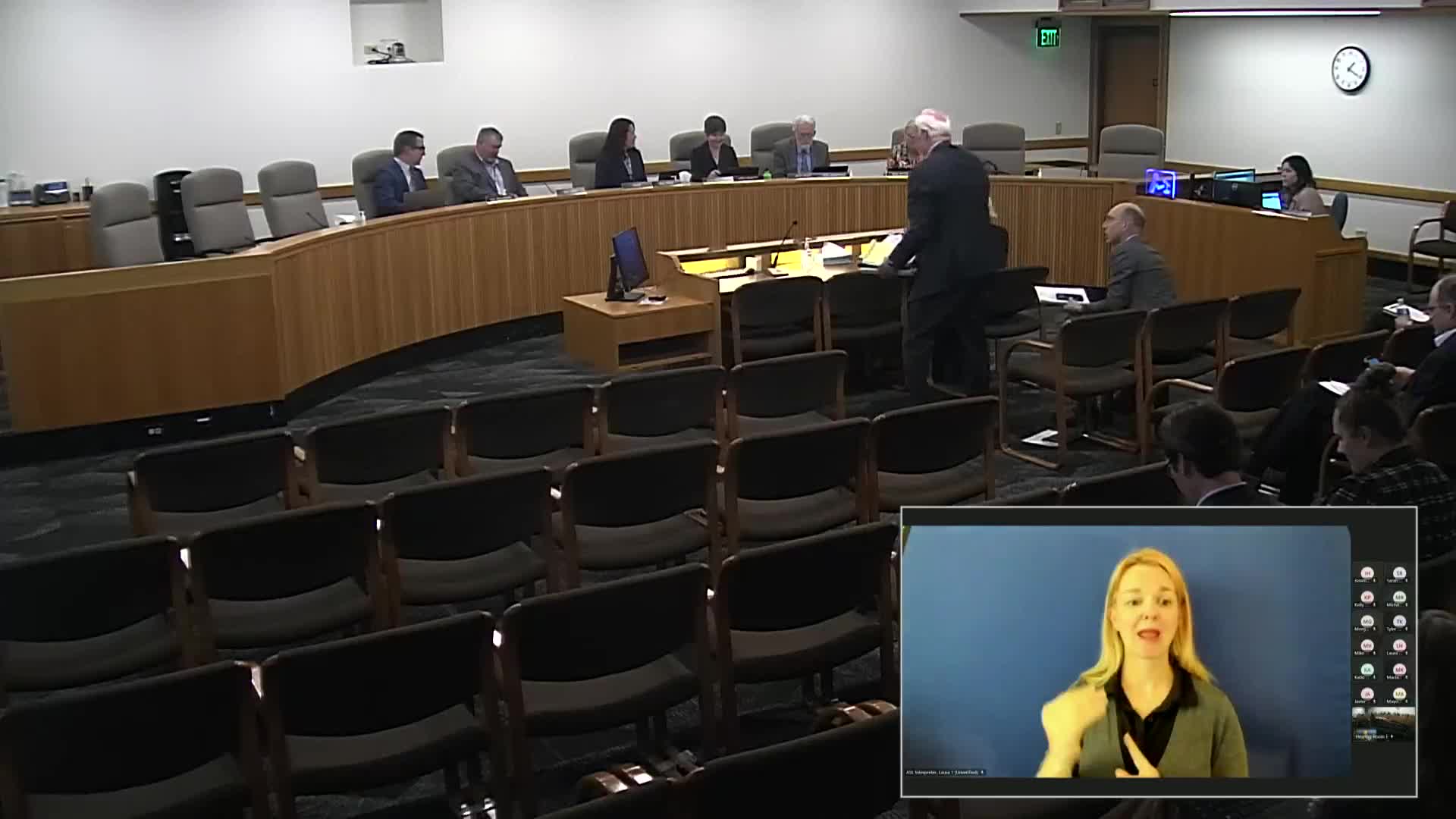Senate committee hears bill to bar bans on manufactured homes in new planned communities, extend tenant dispute program
Get AI-powered insights, summaries, and transcripts
Subscribe
Summary
The Senate Housing and Development Committee held a public hearing May 5 on House Bill 31 44, which would bar new planned-community governing documents from banning manufactured or prefabricated homes and extend a sunset on dispute-resolution grants through Jan. 2, 2031.
The Senate Housing and Development Committee held a public hearing May 5 on House Bill 31 44, which would prohibit recorded instruments for new planned communities from banning manufactured dwellings or prefabricated structures and would extend by statute the sunset on grants and programs that support manufactured-home park tenant dispute resolution through Jan. 2, 2031.
The bill summary read into the record said the measure “prohibits provisions in new recorded instruments or governing documents of planned communities banning the siting of manufactured dwellings or prefabricated structures when they otherwise allow residential housing,” and that the measure “extends through 01/02/2031 programs providing grants for low income facility tenant landlord dispute resolution services and for the Manufactured and Marina Communities Dispute Resolution Advisory Committee Program.” The summary noted “minimal fiscal impact and no revenue impact.”
Representative Pam Marsh (chair, House Committee on Housing and Homelessness) told the committee “we are in a housing crisis” and described HB 31 44 as a narrow fix to remove a remaining barrier to placing manufactured and modular homes in new planned communities: “This bill is an easy 1. … House Bill 3,144 simply closes 1 final gap by requiring new planned communities, that is, planned communities from this day forward, to allow placement of manufactured homes and modular homes.”
Bill Pham Fleet, identified in testimony as executive director with NOAH (Network for Oregon Affordable Housing), said the state has a large existing manufactured-home stock and that removing barriers helps expand an affordable housing supply: “In Oregon, there are over 140,000 manufactured homes which provide affordable homes.” He added the bill applies only to new planned communities, not existing ones, and that language mirrors protections previously adopted for middle housing and accessory dwelling units.
John Van Laningham, an attorney with Oregon Law Center / Lane County Legal Aid who negotiated parts of Oregon Revised Statutes Chapter 90 and helped draft the 2019 law establishing the dispute-resolution program, described the second piece of HB 31 44. He said the dispute-resolution elements were implemented through what he called MMCRC (the Manufactured and Marina Community Resource Center) within Oregon Housing and Community Services, and that the grants pay for mediation referrals and a funded attorney who represents low-income park tenants. Van Laningham said the programs are paid for by a special assessment chosen by park residents, currently $10 per year, and that “there's no state money here in these 2 programs.” He told the committee there is sufficient money in the fund to continue operation for at least two more years and that the bill would extend the sunset on the attorney position and the advisory committee.
No committee questions were recorded and no members of the public had signed up to testify on HB 31 44 before Chair Pham closed the public hearing.
The committee took no formal vote during the hearing; the item remained in the hearing phase with testimony entered into the record.
